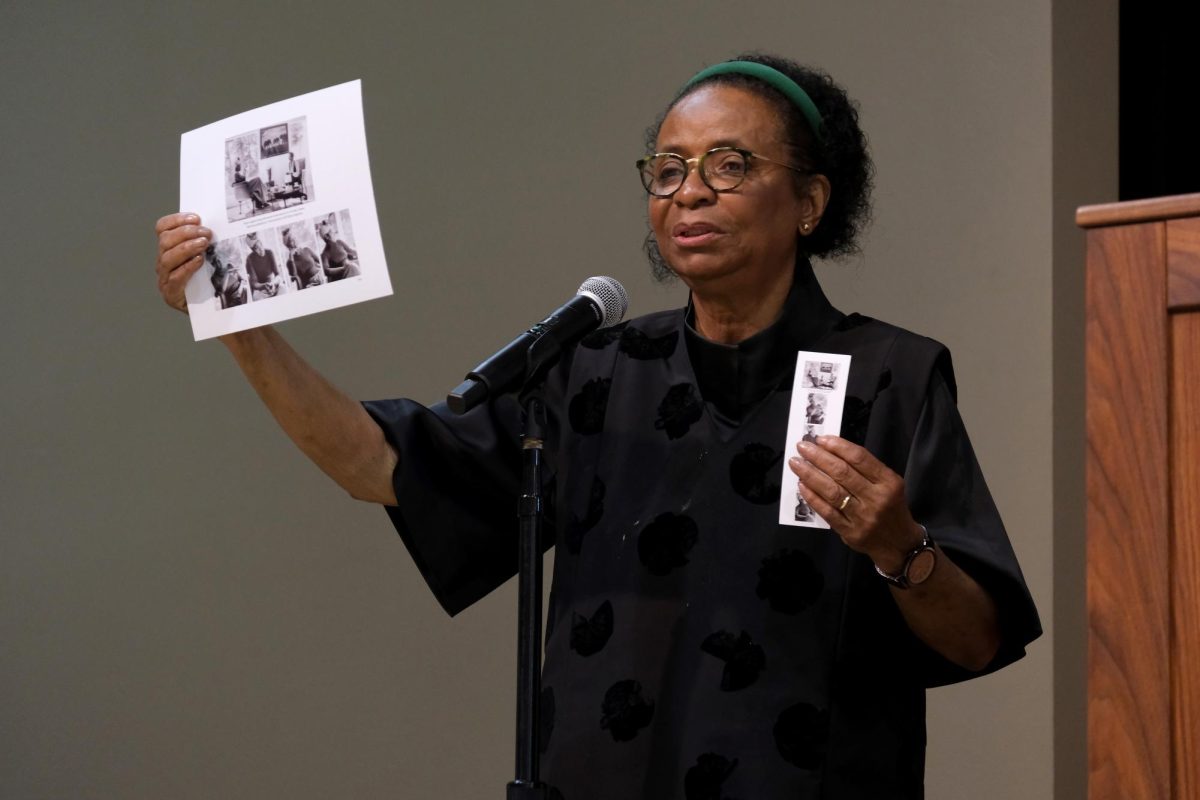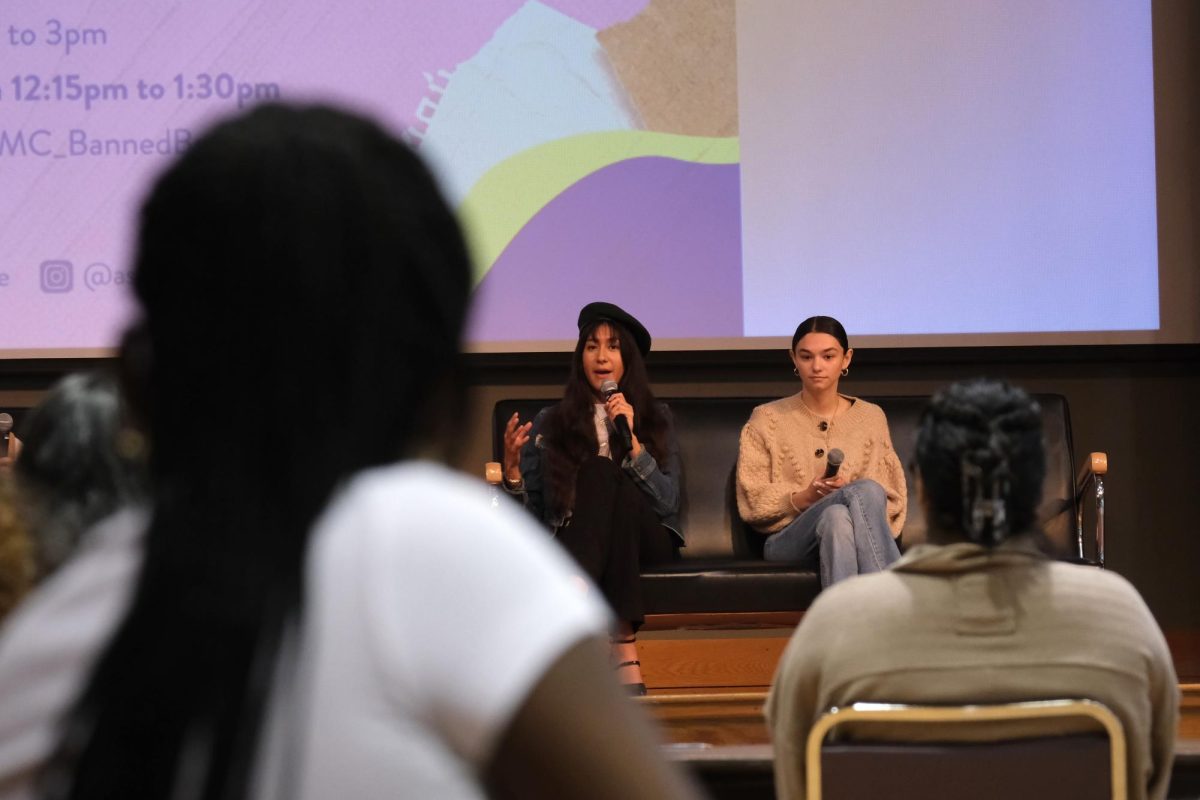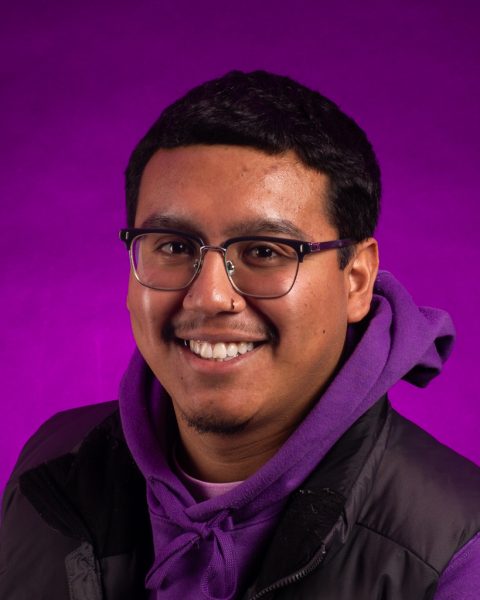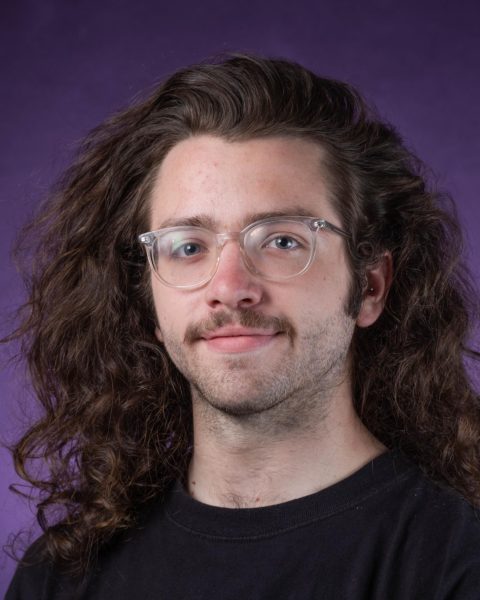Associated Students’ Richard Oakes Multicultural Center hosted a banned books event on Monday, discussing censorship among women’s narratives in literature, media and academia.
ROMC hosts annual legacy events that consist of thematic banned book events at San Francisco State that take place toward the end of September, according to Starr Washington, the library coordinator for ROMC. Washington decides what the themes are for the center’s banned book events. This year’s theme was Women’s Voices, Censored Choices: A Discussion On Women Censored Narratives.
The event featured speakers such as professor Yumi Wilson, a former reporter and editor for the San Francisco Chronicle and Associated Press in Los Angeles; Dorothy Tsuruta, the former department chair of Africana Studies at SFSU who has a doctorate in English education; Michelle Fitzhugh-Craig, an award-winning journalist and founder of Shades Magazine; and a panel of students from Her Campus, an online magazine for college women.
Five poets also presented their work in the Jack Adams Hall in the Cesar Chavez Building.
ROMC’s banned book event differs from the American Library Association’s banned book week that takes place Oct. 1-7. The university library is not in collaboration with ROMC’s events.
“How we differ from ALA is we have the same common goal of advocating for free access to information and opposing censorship, but the difference is we have a more specific theme,” Washington said. “ALA focuses on just the broader subject of banned books while I decided to go towards a more gender-specific approach.”
According to Washington, everyone needs access to all types of information and literature because it offers different perspectives that some may not be accustomed to reading.
“If you limit an individual’s access to any of those [narratives], it’s a disservice to them,” Washington said. “In terms of my theme for this year, if you silence women’s voices by banning their books, the audience misses out on diverse perspectives.”

Banned book events promote literature that may have been removed from specific libraries dealing with topics such as race, LGBTQ+ or sexual assault.
For books to get banned in schools, a proposal must be sent to an elected school board, which may not be aligned with the library’s goals of being in favor of students’ freedom to read, according to Melanie Smith, the first-year experience university librarian at SFSU.
“A challenge is filed and maybe it’s accepted, then the library is told you need to pull this book or you need to have this book behind the counter,” Smith said. “You may have to request [the book]. There’s a lot of different ways that they can materialize it.”
According to ALA’s preliminary data for 2023, their Office For Intellectual Freedom reported 695 attempts to censor library materials from Jan. 1 through Aug. 31. During this year’s reporting period, 49% of books were challenged in public libraries, a 36% increase from 2022’s reporting period.
Among the panel featuring Her Campus were three chapter members — Marisa Pendola, Molly Gutierrez and Livia Williams. The discussion opened with members being asked what it means to them when there is underrepresentation among women in literature.
“I think it can be really harmful for young girls to see a lot of censorship especially when it’s all from women’s voices,” Williams said. “I think it’s really important to take action and stop editing these books.”
Pendola then followed up by giving her own opinion on this matter.
“It’s sending the message that these voices and experiences don’t matter,” Pendola said. “Not only are the people in these communities going to feel like their voices don’t matter, but people outside of these communities aren’t going to be able to learn empathy, care for these people and understand their experiences.”
All three panelists stated that some of their favorite banned books are “The Color Purple” by Alice Walker, “Lucky” by Alice Sebold and “Simon vs. the Homo Sapiens Agenda” by Becky Albertalli. Each story tackles different issues such as growing up, self-realization, sexual assault or coming out.
SFSU will hold ALA’s version of Banned Books Week from Oct. 1-7 and will have a booth on the library’s first floor. It will feature a variety of banned books on display that students can read and form their own opinions.









